Please support Game Informer. Print magazine subscriptions are less than $2 per issue

The Top 100 RPGs Of All Time
In the early days of gaming, identifying role-playing games was easy. The focus on story, exploration, and character progression was distinct from the platformers and action titles that dominated the industry. These qualities earned RPGs a reputation as the longest, most immersive, and most complex experiences available.
Over the years, the borders defining RPGs eroded. The genre’s core concepts incubated and evolved, while other types of games borrowed and applied the mechanics that made RPGs successful. That includes levelling up, upgrading abilities, equipping gear, forming relationships, fighting through dungeons, and more. Today, you can hardly find any release – from strategy games to side-scrollers – without a trace of the RPG genetic code.
This list is a celebration of the genre’s incredible impact; these are the best 100 games that exist at the intersection of narrative, combat, exploration, and progression. Each title strikes a unique balance among those elements, occasionally even pushing the boundaries of what we would traditionally call an RPG. Some of the entries have historical influence, some embody an entire era, and some are just really fun – but all of them have played major roles in shaping the identity of this entertaining and ever-expanding genre.
This feature originally appeared in issue 290 of Game Informer magazine.
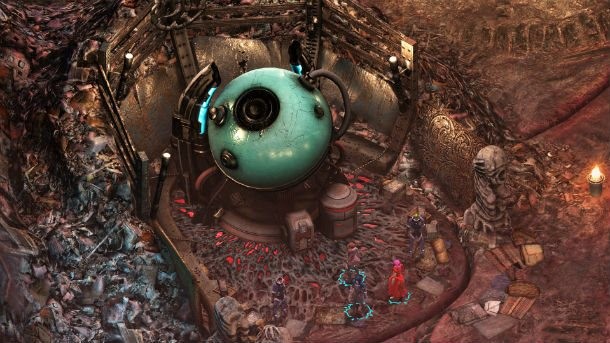
100. Torment: Tides of Numenera
Platform: PS4 • Xbox One • PC • Mac • Linux
Release: 2017
The spiritual successor to Planescape: Torment featured strange characters, captivating dialogue and descriptions, and a surreal world of grotesque and wondrous sights, and that’s just the way we like it. Monte Cook Games’ remarkable Numenera tabletop RPG was the perfect fit for this transgressive adventure in which issues of consciousness and metaphysics took center stage.

99. Dragon Quest III
Platform: NES • GBC • iOS • Android
Release: 1992
The early Dragon Quest games provided a solid framework, but Chunsoft greatly expanded everything in Dragon Quest III. Its world was less linear and was accompanied by a rewarding job system and swappable characters. The game introduced a day/night cycle, which determined when certain items, characters, and quests could be accessed. These elements may seem trivial now, but this was big for the time.
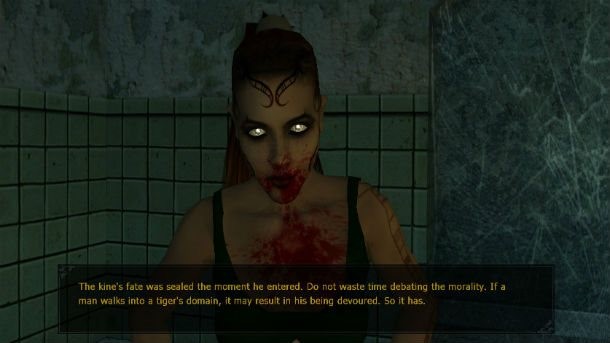
98. Vampire: The Masquerade – Bloodlines
Platform: PC
Release: 2004
Based on White Wolf’s World of Darkness tabletop, this 2004 release has gained a cult following for its immersive setting featuring vampire societies in modern Los Angeles and impressive branching narrative paths. RPG developer Troika Games tragically closed shortly after the game’s launch, but fans took the development mantle and continue to improve the game to this day.

97. Dark Cloud 2
Platform: PS4 • PS2
Release: 2003
Beneath Dark Cloud 2’s colorful art and whimsical tone, Level 5 created a deep title featuring a world-building mechanic and weapons system. Building towns with geostones found in procedurally generated dungeons was a satisfying loop, and synthesizing items to improve weapons bolstered hack-and-slash combat. With side activities like using photography to come up with inventions and fishing, this RPG kept layering on fun components.

96. Lost Odyssey
Platform: Xbox One • 360
Release: 2008
Penned by Final Fantasy founding father Hironobu Sakaguchi, Lost Odyssey is a story-intensive, turn-based JRPG that follows an immortal named Kaim through a world struggling to control a magic revolution. Lost Odyssey is best known for its superb writing, which showed Kaim coming to terms with generation after generation of people dying around him, sometimes unfolding on nothing but pages of text.
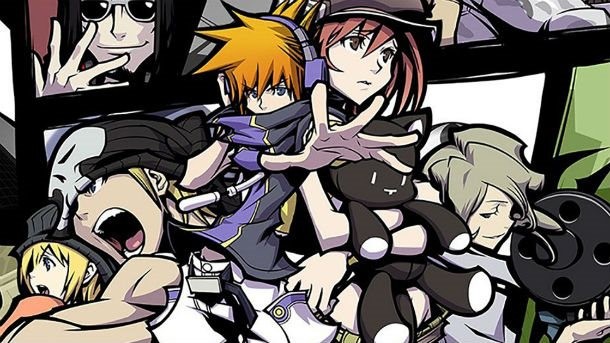
95. The World Ends With You
Platform: DS • iOS • Android
Release: 2008
Pushing the Nintendo DS’ control scheme to its breaking point, The World Ends With You had players breaking out rhythmic sequences on one screen while using a variety of equippable pins to fight monsters on the other. It’s a shame Square Enix never developed a sequel, as its colorful rendition of Shibuya, idiosyncratic characters, and strong narrative left us wanting more.
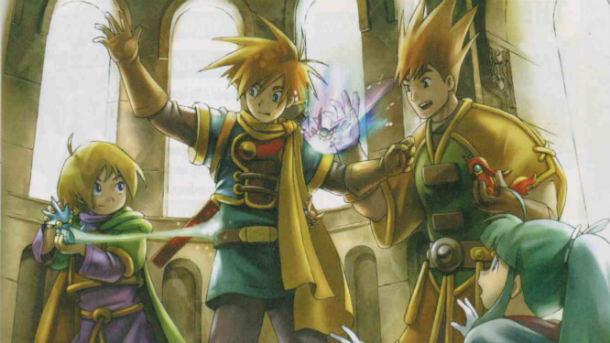
94. Golden Sun
Platform: Wii U • GBA
Release: 2001
Developer Camelot is known for Shining Force and many of the recent Mario sports titles, but before it switched to designing Mario offshoots full-time it created this standout RPG. Golden Sun featured an engaging story, familiar but refined RPG mechanics, fun puzzles, and the collectible Djinn creatures.

93. Pillars of Eternity
Platform: PC • Mac • Linux
Release: 2015
Riffing off the success of Baldur’s Gate and Icewind Dale well over a decade earlier, Pillars of Eternity was a clarion call that the party-based isometric RPG was once again on the rise. Obsidian’s epic notably established a ruleset and universe of its own, while also presenting a memorable story filled with nuanced characters and challenging battles.
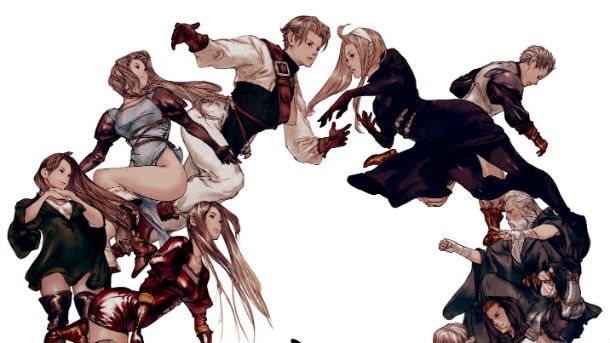
92. Tactics Ogre: Let Us Cling Together
Platform: Wii U • Wii • PS1 • Vita • PSP
Release: 1998
Quest’s strategy/RPG saw much success overseas before coming stateside, but the deep tactical combat resonated with a North American audience as well. With isometric, turn-based strategy gameplay, Tactics Ogre is sometimes caught in the shadow of Final Fantasy Tactics, but enthusiasts had a lot to enjoy here, with an alignment and class system that allowed you to customize your perfect party.

91. Bastion
Platform: PS4 • Xbox One • 360 • Vita • PC • Mac • Linux • iOS
Release: 2011
A stunning art style and a gravelly voiced narrator greeted players when they arrived in Bastion’s world for the first time, and both elements helped carry the story forward as a lonely hero fought through a world devastated by calamity. A singular soundtrack and poignant ending helped make Bastion a standout debut for Supergiant Games, and its framework had just the right mix of RPG elements and exciting action.
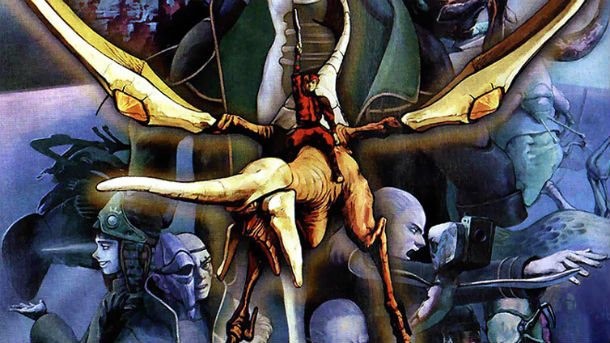
90. Panzer Dragoon Saga
Platform: Saturn
Release: 1998
The first two Panzer Dragoon games were on-rails shooters, so it seemed strange when Sega went off the rails with this RPG. However, Panzer Dragoon Saga amassed a cult following thanks to its epic story about a vanished civilization, 360-degree battles that mixed real-time and turn-based action, and a pet dragon who evolved throughout your journey based on your actions. Unfortunately, Saga also came out near the end of the Saturn’s lifespan, so it had a limited print run, making it a hot collector’s item today.

89. Tales of Symphonia
Platform: PS3 • GameCube • PC
Release: 2004
The Tales games have garnered praise for their combat and party bonding, and Tales of Symphonia epitomizes those two elements. Symphonia is Namco’s most beloved offering; it had a likeable cast, colorful world, and a story full of twists. It also transformed the battle system from fighting on a 2D plane to a fully maneuverable 3D space, now standard for the series.
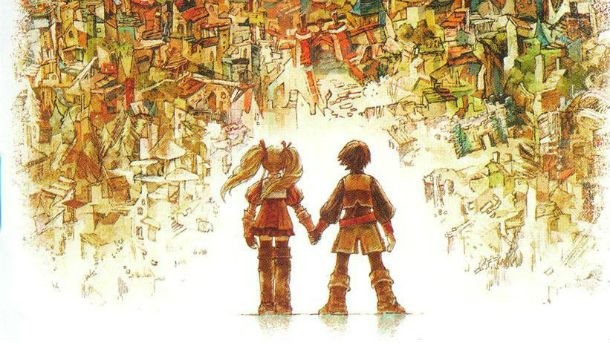
88. Radiata Stories
Platform: PS2
Release: 2002
Talking to townspeople doesn’t sound like much of a selling point for a game, but it was a driving force in Tri-Ace’s Radiata Stories. With 177 allies to collect – each with their own lives, jobs, homes, and routines – Radiata Stories was as much about making friends as protagonist Jack Russell’s quest to end the war between the humans and non-humans. As part of the that struggle, the narrative forked about 2/3 through. The dramatically different events, allies, and outcomes based on the path you chose gave players an enticing reason to start a New Game Plus.
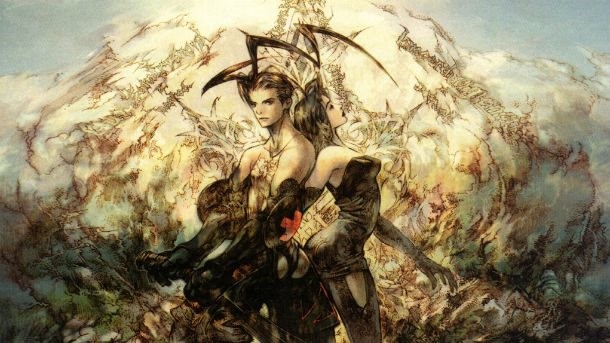
87. Vagrant Story
Platform: PS3 • PS1 • Vita • PSP
Release: 2000
Square’s Vagrant Story deftly mixed real-time combat components such as rhythmic chain attacks, tactical gameplay like targeting body parts, and a deep weapon-crafting system with an absorbing story by Yasumi Matsuno (Tactics Orge) and art from Hiroshi Minagawa (Final Fantasy Tactics). Vagrant Story took the standard dungeon crawling and tactics forms and elevated them by layering its own distinct components and gothic overtures.

86. Pool of Radiance
Platform: NES • PC • Mac • Amiga • Apple II • Commodore 64 • PC-9800
Release: 1988
The first of the long-running “Gold Box” games from Strategic Simulations Inc. (SSI), Pool of Radiance adapted the AD&D ruleset and offered an addictive mix of exploration and combat. Players explored in a first-person perspective, and the top-down combat mode demanded strategy and smart character usage. Pool of Radiance also had an early example of a character export system, which let you carry your party forward to subsequent games.

85. Might & Magic: World of Xeen
Platform: PC • Mac
Release: 1994
New World Computing’s classic fantasy RPG combines two Might & Magic titles – IV and V – into one huge title on a single disc with additional quests, content, and digital speech. An epic dungeon crawling, party-based romp, the World of Xeen features an immense world to explore, hordes of monsters, and many various ways to approach the many challenges in both sides of Xeen.

84. Horizon Zero Dawn
Platform: PS4
Release: 2017
Guerrilla Games’ new open-world opus may not have the deepest RPG mechanics, but it nailed the most important feature of the genre: a distinctive and brilliantly realized universe, bolstered by a compelling narrative. Hunting giant mechanical beasts is a thrill thanks to tactics-rich combat and steady player progression, but Horizon’s deeper mysteries make it a standout example of a modern-era action/RPG.
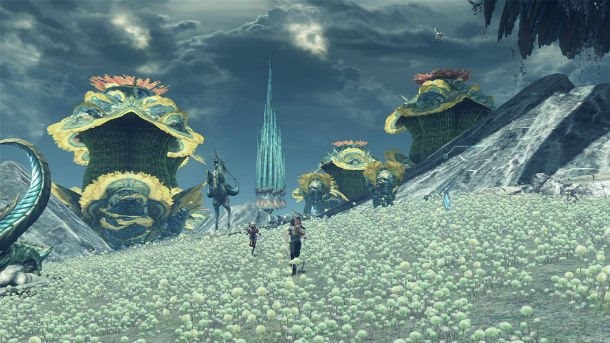
83. Xenoblade Chronicles
Platform: Wii U • Wii • New 3DS
Release: 2012
Xenoblade Chronicles came at a time when many Japanese RPGs felt like they were sewn from the same fabric, but Monolith Soft’s gigantic game proved the country could still deliver fresh experiences. The sheer scope and attention to detail, from the two vast and unusual continents to the complex combat systems, made it stand out. Xenoblade Chronicles captured the essence of the genre, while painting a bright future for it.
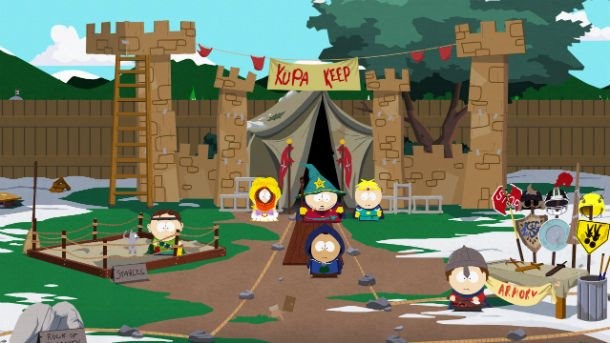
82. South Park: The Stick of Truth
Platform: PS4 • Xbox One • PS3 • 360 • PC
Release: 2014
In the world of licensed video games, few titles stand out as exceptional or worthy of the source material. With The Stick of Truth, veteran RPG studio Obsidian collaborated with the creators of the long-running television series to deliver a game that not only featured strong turn-based combat, fun exploration, and a hilarious story, but also the feeling that players were in an episode of South Park.

81. Destiny
Platform: PS4 • Xbox One • PS3 • 360
Release: 2014
First-person shooting might be the first thing that comes to mind with Bungie’s shared-world experience, but look under the hood, and it’s the character improvement, weapon/armor collection, and stat optimization that kept many players coming back for years of adventure. Destiny is one of the first in a new generation of hybrid role-playing experiences, but you can bet it won’t be the last.
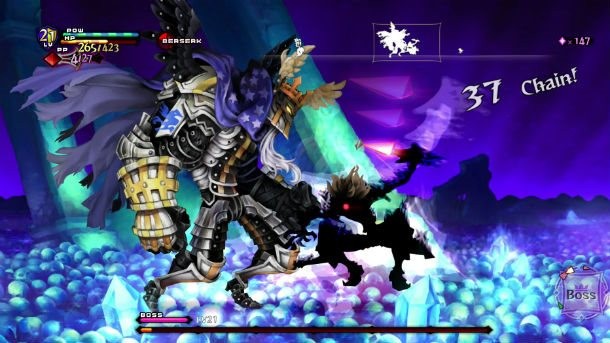
80. Odin Sphere
Platform: PS4 • PS3 • PS2 • Vita
Release: 2007
The stylish art and interlocking story arcs were great when Odin Sphere first released on PS2, but Vanillaware went above and beyond for the remaster in 2016. Odin Sphere: Leifthrasir retained everything fans loved about the original, but fixed technical issues (like pervasive slowdown) and added new mechanics that made combat more fun and progression more satisfying. Odin Sphere was good, but Leifthrasir fully realized its potential.
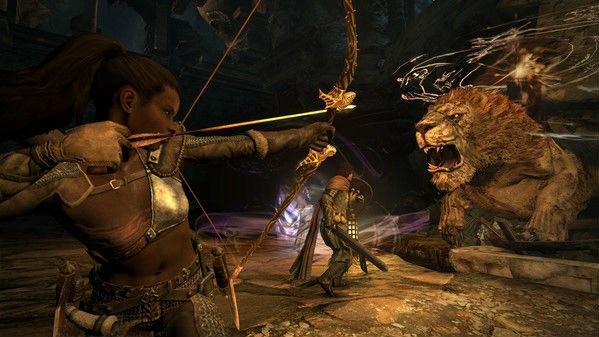
79. Dragon’s Dogma
Platform: PS3 • 360 • PC
Release: 2012
Capcom’s open-world action/RPG was a refreshing Japanese take on a genre that had long been associated with the West. Players could explore the massive world and climb up screen-filling griffons, hydras, and other beasts to deliver the fatal blows. A.I. companions lived online even when players were away, helping other players and earning loot and experience, and the novel pawn system relied on you recruiting and using other people’s companions.
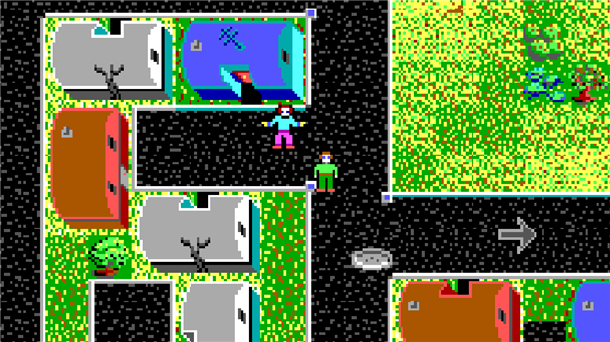
78. Wasteland
Platform: PC • Mac • Linux • Apple II • Commodore 64
Release: 1988
Video games have no shortage of post-apocalyptic settings, and Wasteland is a big reason why. Interplay’s seminal CRPG and pre-cursor to the Fallout series captivated gamers with rich storytelling, morality based decision-making, and problems that accommodate multiple solutions. Wasteland’s popularity isn’t just historical; fans have poured millions of dollars into two successfully crowd-funded sequels.

77. Radiant Historia
Platform: DS
Release: 2011
Radiant Historia had more in common with classic 16-bit RPGs than its 2011 contemporaries. However, Atlus didn’t just assemble a throwback from familiar pieces. Radiant Historia innovated within the boundaries of its traditional structure, with a positioning-based battle system and timeline-jumping story that held plenty of surprising twists, even for the genre-savvy. This is the best handheld RPG you (probably) never played.
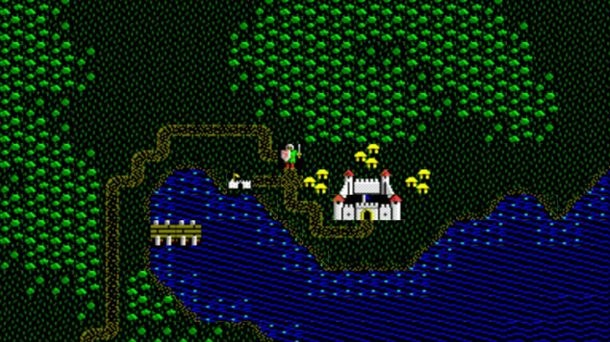
76. Ultima IV: Quest of the Avatar
Platform: NES • Master System • PC Amiga • Apple II • Atari 800 • Atari ST • Commodore 64
Release: 1985
Quest of the Avatar’s combat and graphics have not aged well, but it still holds an important place in the genre’s development. Origin Systems took an unconventional approach with this fourth entry in the Ultima series. With no long-dormant evil looming, Avatar forwent the “save the world” trope in favor of an experience that tracked your development as a noble hero. Heavy on dialogue and exploration, players were tasked with mastering virtues like compassion and honesty.

75. Shadow Hearts: Covenant
Platform: PS2
Release: 2004
Developer Nautilus took the previously grim series in a more lighthearted direction for this sequel – and it paid off. In a genre filled with run-of-the-mill characters, Covenant’s were anything but; your party members included a vampire wrestler and a lecherous puppeteer. The comical interactions made Covenant a delight, but underneath the humor was also a touching tale about how far main character Yuri would go for his love, Alice.
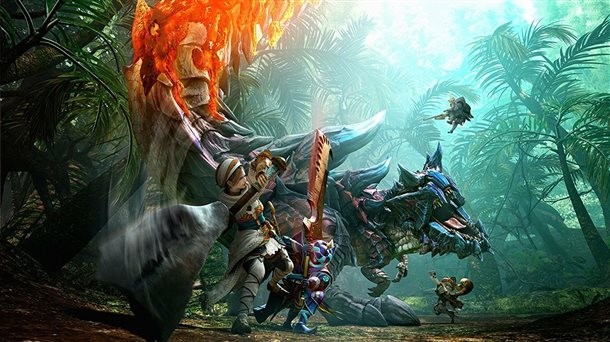
74. Monster Hunter Generations
Platform: 3DS
Release: 2016
Capcom’s latest Monster Hunter is all-encompassing, featuring every monster and town from the franchise’s past. Generations melded all the improvements from its predecessors and added powerful new moves and more character optimization, making it the essential version to own. The hunting, foraging, mining, and upgrading loop proved satisfying and thrilling, both by yourself or with friends online.
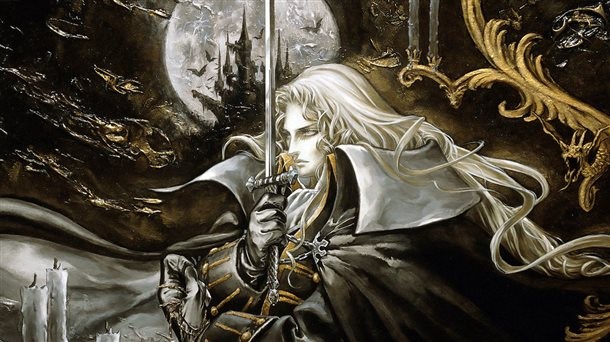
73. Castlevania: Symphony of the Night
Platform: Xbox One • PS3 • 360 • PS1 • Saturn • Vita • PSP
Release: 1997
Symphony of the Night is known for its extensive exploration, hidden rooms, and enjoyable combat system. Beneath it all, however, lurks deep RPG systems, such as gaining experience, summoning familiars, and managing attributes like strength, defense, intelligence, and luck. This is one of the few games people can brag about beating twice, once the normal way, and once upside down, thanks to the inverted castle that appears.
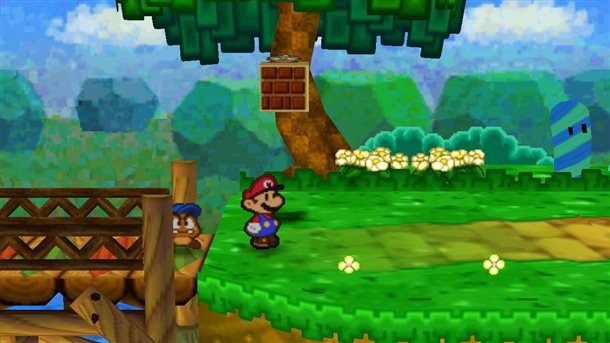
72. Paper Mario
Platform: Wii U • Wii • N64
Release: 2001
Paper Mario put a fun spin on the Super Mario RPG formula by turning all the characters into paper-thin sheets. Nintendo took the humor up a notch with a series of a laugh-out-loud story beats and goofball characters we still want to see return. Intelligent Systems also innovated on the action with a turn-based system that allowed players to boost their attacks with well-timed button prompts.

71. Jade Empire
Platform: 360 • Xbox • PC • iOS
Release: 2005
The closest thing to a cult classic in BioWare’s oeuvre, Jade Empire was a martial-arts driven RPG that took place in China, following one student’s attempt to rescue his or her kidnapped master. Embracing both the game engine and light-versus-dark alignment design of Knights of the Old Republic, Jade Empire nonetheless marked an inspired departure from the company’s more traditional takes on fantasy and sci-fi.
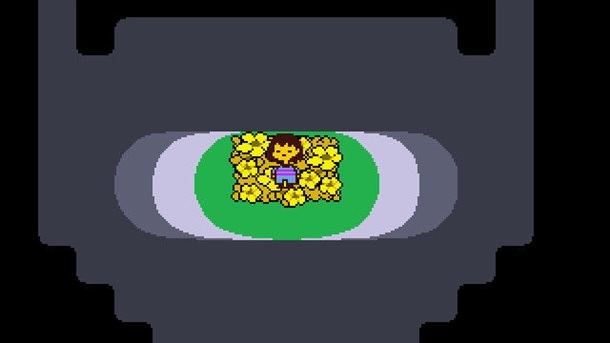
70. Undertale
Platform: PS4 • PC • Mac • Linux • Vita
Release: 2015
Undertale became a sensation within days of its release, garnering glowing reviews and adoration from gamers. Toby Fox’s pacifist RPG challenged players to think about violence and what it means to be a force of positivity in a bleak world, all while introducing a memorable cast of characters and an enthralling soundtrack. Among the most charming games on this list, Undertale should not be missed by RPG fans.

69. Disgaea: Hour of Darkness
Platform: PS3 • PS2 • PSP • DS • PC
Release: 2003
Disgaea: Hour of Darkness was a “kitchen-sink" strategy/RPG, merging tactical combat with several ways to equip, level up, and fight with your characters. Between fights players could battle inside their weapons to make them stronger, persuade an assembly to let them create new minions, and more. It also introduced the world to Prinnies, who are cool doods.

68. Divinity: Original Sin
Platform: PS4 • Xbox One • PC • Mac • Linux
Release: 2014
Turn-based games are usually intimate affairs, with one person lording over all combat and party operations, but Divinity: Original Sin opened the door for two players to experience this type of RPG together. Developer Larian Studios created an engaging cooperative experience that showcases depth in questing, leveling, and combat strategy. Original Sin rarely held your hand, pushing the player (or players) to experiment, explore, and forge a unique quest.
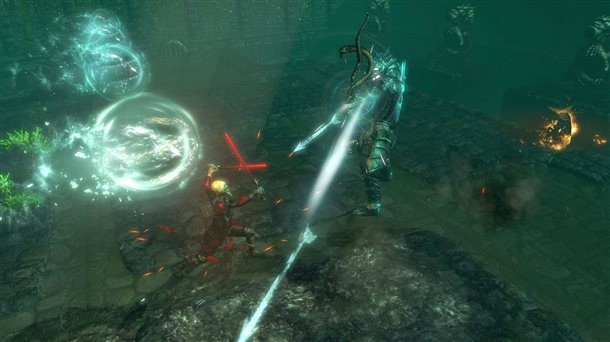
67. Path of Exile
Platform: PC
Release: 2013
Embracing many of the aspects that put Diablo on the map, Grinding Gear Games’ isometric action-RPG has continued to grow and evolve almost exponentially after its release, offering massive customization and new content. Using a sphere grid to customize your skills and outfitting the best gear is extremely satisfying, with the next big patch or league always only a month or two away.

66. XCOM: Enemy Unknown
Platform: Xbox One • PS3 • 360 • PC • Mac • Vita • iOS • Android
Release: 2012
XCOM may be a strategy game first and foremost, but the more we thought about it, the more we felt it shared with many tactics-based RPGs. The Firaxis reboot brilliantly balanced fighting turn-based battle with using your downtime to upgrade and improve your alien-fighting cast. With persistent death hanging over every encounter, we acted trepidatiously in fear of losing those characters we invested so much time and resources into.
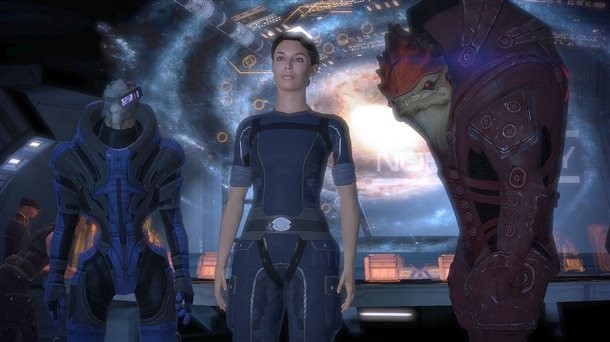
65. Mass Effect
Platform: Xbox One • PS3 • 360 • PC
Release: 2007
The first Mass Effect introduced us to the revered Commander Shepard, along with a crew that became our best friends as the series continued. The original set the foundation for what transformed into an epic space-opera trilogy. Although rough around the edges, Mass Effect is still held dearly by fans with its strong writing, squad-based character mechanics, and endearing cast nearly a decade later.

64. Darkest Dungeon
Platform: PS4 • Vita • PC • Mac • Linux
Release: 2016
Red Hook’s dungeon crawler garnered critical acclaim for its Lovecraftian atmosphere and intriguing affliction system. The game’s emphasis on sacrifice was engaging, forcing you to push your beloved heroes beyond the brink repeatedly, only to cruelly replace them with lesser adventurers when they perished. Darkest Dungeon is a must-play modern RPG, but you need to have a stomach for unforgiving scenarios.
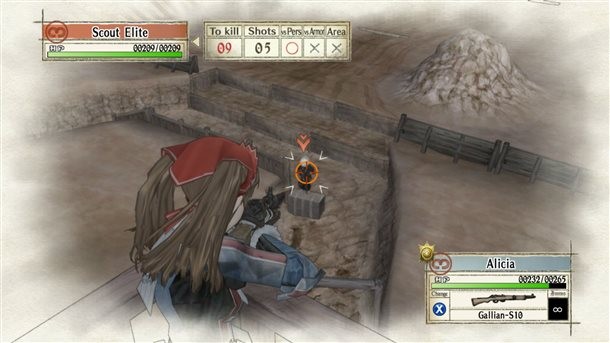
63. Valkyria Chronicles
Platform: PS4 • PS3 • PC
Release: 2008
Sega’s twist on the strategy/RPG introduced several smart tweaks to the genre. Units leveled up as a class, but individuals had specific traits that made them useful and gave them personality. The third-person maneuvering let players see the battlefield from a fresh perspective, and the story’s focus on everyday people thrust into harrowing situations illustrates the impact of war in large and small ways.
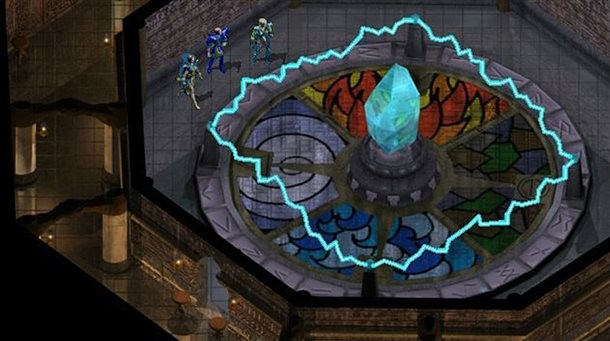
62. Baldur’s Gate
Platform: PC • Mac • Linux • iOS • Android
Release: 1998
The era of the isometric third-person CRPG rose to prominence with BioWare’s first smash hit, which used the revolutionary Infinity Engine to offer freeform exploration and party-based combat as players explored the Forgotten Realms D&D setting. Revitalizing the RPG genre alongside Diablo, Baldur’s Gate set the standard by which RPGs that followed would be measured.
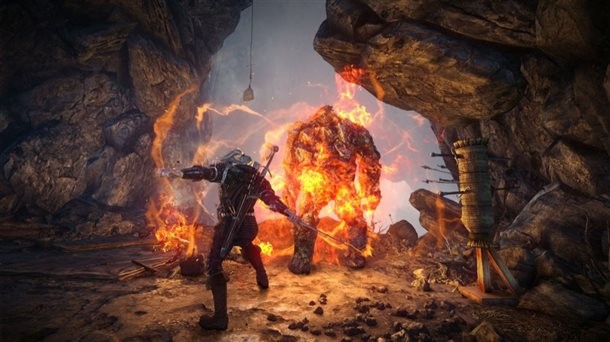
61. The Witcher 2: Assassins of Kings
Platform: Xbox One • 360 • PC • Mac • Linux
Release: 2011
With this sequel, CD Projekt Red showed that action/RPGs can still be strategic. Unforgiving combat quickly overwhelmed players who didn’t plan ahead by applying poison to their blades and setting out traps. That degree of forethought in melee fights wasn’t for everyone, but the choice and consequence presented in the narrative won over critics and set the table for the series’ next grand adventure.
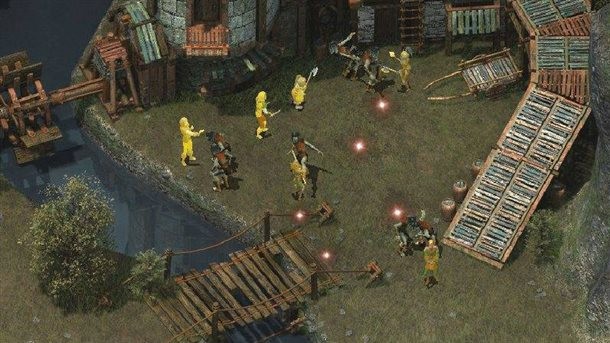
60. Icewind Dale II
Platform: PC
Release: 2002
When you wanted to get into a Black Isle Studios title with more action and less story, this was a great option. Dungeons & Dragons would get more real-time counterparts in the future, but Icewind Dale II was a frontrunner in letting players dive right in to the systems underneath the dice-rolling hood, and a fantastic introduction to the worlds of Forgotten Realms for players who may not have even known what D&D was when they picked up a copy.

59. Chrono Cross
Platform: PS3 • PS1 • Vita • PSP
Release: 2000
Chrono Cross is the successor to Chrono Trigger, though the two are united primarily by the concept of exploring how your choices affect different worlds. With 45 playable characters and a unique combat system based on elements and color, Chrono Cross offered just as much gameplay depth and dimension-bending narrative intrigue. Top-notch writing and a darker tone helped turn Chrono Cross into one of the most wildly different, yet compelling sequels we’ve seen.

58. Tales of the Unknown, Volume 1: The Bard’s Tale
Platform: NES • PC • Mac • Amiga • Amstrad CPC • Apple II • Apple IIGS • Atari ST • Commodore 64 • ZX Spectrum • PC-9801
Release: 1985
Emblematic of an entire generation of early computer role-playing games, this dungeon crawl challenged players to navigate maze-like tunnels, fighting monsters and leveling. Inspired directly by D&D and iterating off the Wizardry template, The Bard’s Tale wowed with its graphics, puzzles, and steep difficulty. Some players may still have their hand-drawn graph paper maps tucked away in an old box.
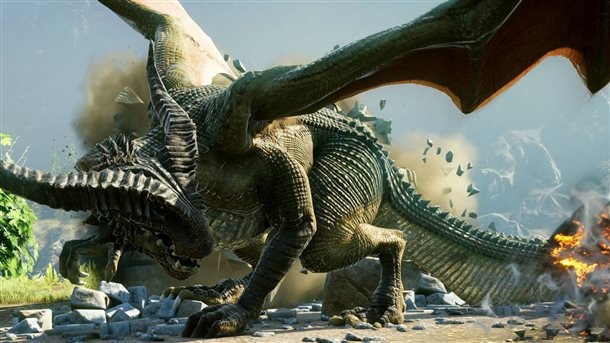
57. Dragon Age: Inquisition
Platform: PS4 • Xbox One • PS3 • 360 • PC
Release: 2014
This BioWare series has seen its share of ups and downs, with both Dragon Age: Origins and Dragon Age II having very different visions. Inquisition reinvented the series by applying the character-building and combat elements of past games to an open-world structure, and making players’ actions feed into the power of the Inquisition they led. It featured well-written characters and a nuanced narrative that made Thedas one of the most compelling RPG settings to date.
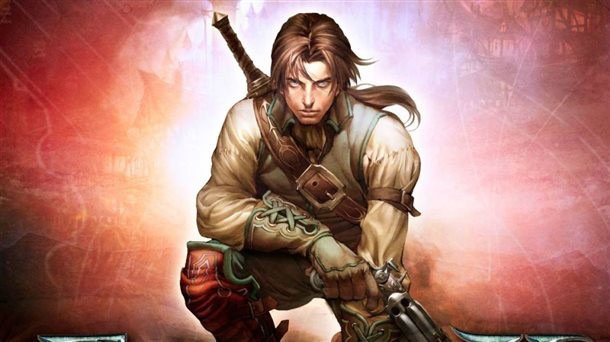
56. Fable II
Platform: Xbox One • 360
Release: 2008
Fable creator Peter Molyneux is notorious for his overpromising enthusiasm, but Fable II met most of the expectations he set for it prior to release. Taking place over a hero’s lifetime, the game gave the player a dog, made combat simple and fun, and let players feel as though they were truly affecting the world of Albion for good or evil. The franchise’s fate is currently uncertain, but Fable II will always be looked back on fondly.

55. Skies of Arcadia
Platform: GameCube • Dreamcast
Release: 2000
The pirate’s life paid off handsomely for Skies of Arcadia. Set in a world where people live on floating islands and travel via huge flying ships, players suited up as the last line of defense against the pow er-hungry Valuan Empire. The excellently crafted turn-based combat system, fun cast of characters, and full freedom to fly an airship turned Skies of Arcadia into one of the Dreamcast’s most surprising successes.

54. Grandia II
Platform: PS2 • Dreamcast • PC
Release: 2000
Game Arts captured the heart and soul of the classic RPG with its Grandia series, and the second entry remains its finest offering. The quasi-real-time battle system featured a unique mechanic for canceling enemy attacks by timing your strikes, which made combat a blast. Mercenary Ryudo’s adventure to save the world may not have been groundbreaking, but the sarcastic wit he shares with his avian companion Skye made it memorable.

53. Star Ocean: The Second Story
Platform: PS1 • PSP
Release: 1999
Decades later, the Star Ocean series still hasn’t topped The Second Story. The sci- fi action/RPG’s enormous depth included many things now considered to be genre staples, including a social system and factoring choice into endings. The complex skill and crafting system, with characters’ unique specialties ranging from studying chemistry to composing symphonies, meant players always had something to customize.
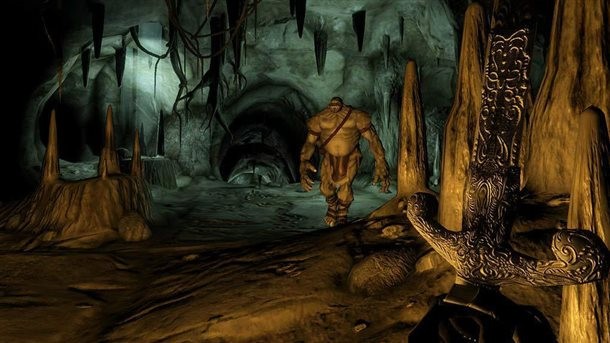
52. The Elder Scrolls IV: Oblivion
Platform: Xbox One • PS3 • 360 • PC
Release: 2006
As an early and popular Xbox 360 title, Oblivion marked the entry-point for many into The Elder Scrolls series. The game began in an underground prison, which afforded an overwhelming feeling of potential and grandeur when you finally stepped out into the world and realized you can go wherever you wanted. The open nature of both the adventure and your character build is an RPG style few have successfully emulated.
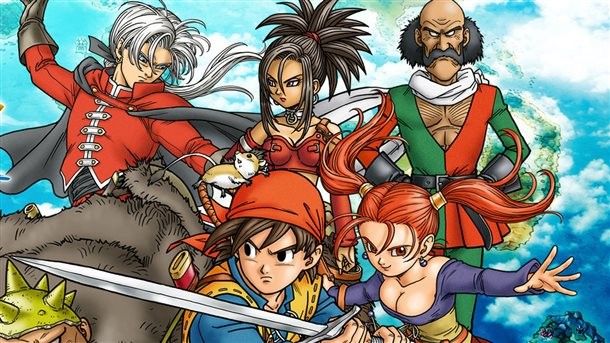
51. Dragon Quest VIII: Journey of the Cursed King
Platform: PS2 • 3DS • iOS • Android
Release: 2005
With cel-shaded graphics showing off renowned comic artist Akira Toriyama’s talents, Dragon Quest VIII succeeded in its storytelling and world-building, inviting players to battle blue slimes in the Kingdom of Trodain. The heart and soul of this series’ turn-based combat system remained intact, but was heightened by the visuals, and made more challenging by enhanced A.I. tactics.

50. Pokémon Gold & Silver
Platform: DS • GBC
Release: 2000
Red & Blue set the standard for Pokémon, but for many fans, Gold & Silver marked the high point. The sequel added 100 new Pokémon, but its biggest surprise appeared after beating the game. Players could travel to Red & Blue’s Kanto, collect a new set of badges, see how the world had changed in the intervening years, and eventually challenge your trainer from the first game to a difficult battle.
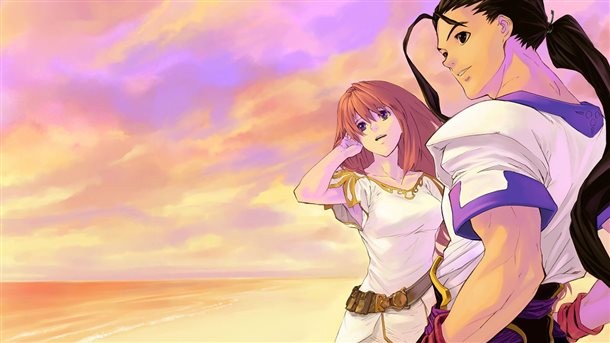
49. Xenogears
Platform: PS3 • PS1 • Vita • PSP
Release: 1998
Tackling topics like religion, psychology, and philosophy, the Square team led by Tetsuya Takahashi did not hold back with Xenogears. Using a Final Fantasy-inspired battle system, players took on opponents on foot or in mechs. In an era where most RPGs avoided complex narrative themes, Xenogears stuck out for making players ponder topics like existence and purpose, even if its ending ultimately disappointed.
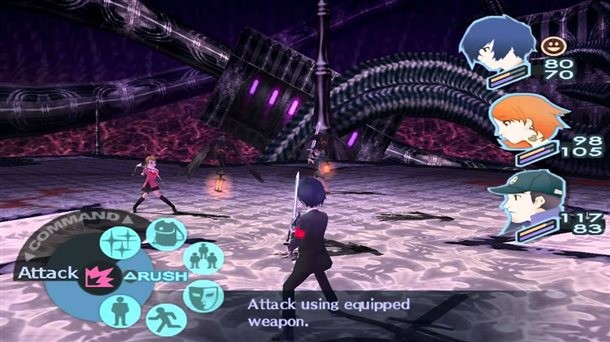
48. Persona 3
Platform: PS3 • PS2 • Vita • PSP
Release: 2006
Though the Shin Megami Tensei subseries had been around since 1996, the third entry is where Atlus found its true identity. The tantalizing and well-done gameplay loop asked players to juggle a high-school student’s relationships and schedule with saving the world from a mysterious threat. The series has improved by leaps and bounds since, but this modern classic still shines as brightly as ever. Both the FES and the portable version improved on an already great game.

47. The Legend of Zelda: Breath of the Wild
Platform: Switch • Wii U
Release: 2017
The Zelda series never claimed to be an RPG, but the latest entry fits the bill with side quests, a sense of character progression with its stamina and heart levels, weapon stats, and even an amnesiac protagonist – a JRPG staple. It’s one of our favorite Zelda games of all time, and next to Zelda II, one of the few that plays like an RPG.
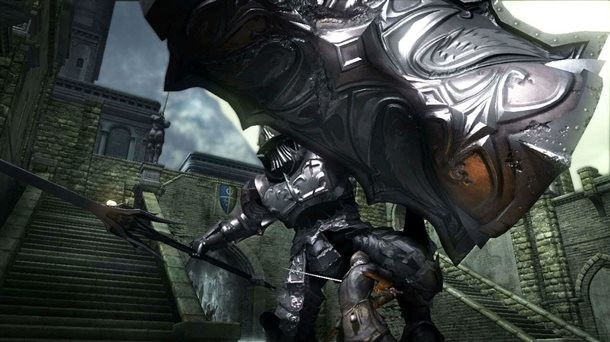
46. Demon’s Souls
Platform: PS3
Release: 2009
From the lesser-known King’s Field series rose a new champion in From Software’s Demon’s Souls. Originally considered a failure internally, Hidetaka Miyazaki stepped in to realign the game’s development; the final product featured the epic bosses and uncompromising challenge that have made From Software’s action/RPGs a genre of its own. The unexpected success eventually set Miyazaki on course to becoming president of the company.

45. Mass Effect 3
Platform: Xbox One • Wii U • 360 • PS3 • PC
Release: 2012
Most gamers only remember the final four minutes of Mass Effect 3. But the controversy over a color-coded cutscene obscures the fact that the trilogy’s finale is, in its entirety, a long and poignant farewell to an unforgettable hero. Throughout Mass Effect 3, Shepard confronts the consequences of past decisions and reunites with beloved allies to save the galaxy one last time, making it a worthy sendoff to one of gaming’s best RPG trilogies.
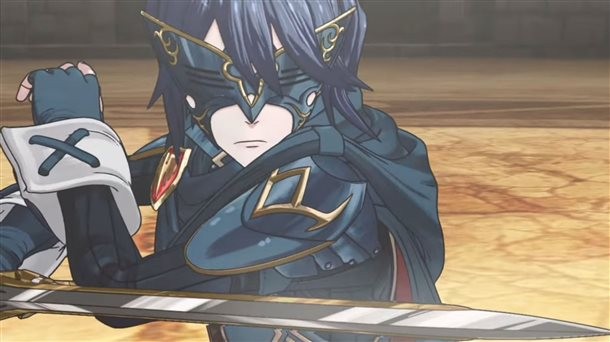
44. Fire Emblem: Awakening
Platform: 3DS
Release: 2013
While Fire Emblem was a successful strategy RPG well before Awakening, Intelligent Systems found a strong new footing in the series’ first 3DS title. Throughout the game, units could fall in love, get married, and have children you could march into battle. It also introduced easier difficulties for those who just wanted to watch all the romance unfold and were too intimidated by the challenging but rewarding turn-based combat.

43. Wizardry: Proving Grounds of the Mad Overlord
Platform: NES • Game Boy • PC • Mac • Apple II • Commodore 64
Release: 1981
Most of Wizardry’s screen was text, but a small box in the upper left-hand corner showed monsters, dungeons, and chests. These minor visuals were enough to bring our imaginations to life. Often cited as the first party-based RPG, Wizardry showed just how deep and engaging questing could be. Numerous legendary game creators reference Wizardry as inspiration for their games, including Elder Scrolls director Todd Howard and Dragon Quest creator Yuji Horii.
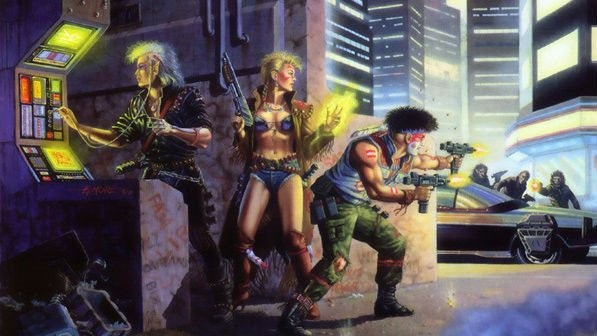
42. Shadowrun
Platform: SNES
Release: 1993
Beam Software’s Shadowrun drew players in with its film-noir presentation. The near-future setting and hacking mechanics set it apart from other RPGs at the time, but its standard conventions like exploration, magic-based combat, and environmental examination kept the game anchored to the traditional RPG experience.

41. Xenosaga: Episode I – Der Wille zur Macht
Platform: PS2
Release: 2003
Monolith Soft’s absurdly ambitious sci-fi saga was filled with memorable characters – but none stand out more than KOS-MOS. In the first episode, philosophical and religious themes combined in a cinematic story, and the complex gameplay systems had enough depth to satisfy hardcore RPG fans. A disappointing second installment (and the culling of six planned entries down to three) led to rough patches later, but Xenosaga had a fantastic start.

40. Neverwinter Nights
Platform: PC • Mac • Linux
Release: 2002
Named after an earlier MMO set within the Dungeons & Dragons universe, BioWare’s ambitious 2002 release gave tremendous control to its players. While its core campaign was entertaining, the flexible Aurora toolset gave digital dungeon masters the chance to craft their own massive digital adventures. This extended the game’s life far beyond its initial launch, and gave many future BioWare employees their first taste of game development.

39. Fallout
Platform: PC • Mac
Release: 1997
The spiritual successor to Wasteland, this post-apocalyptic RPG melded a retro-futuristic aesthetic to the narrative to make a universe unlike any others in games. Its clever mix of dangerous turn-based combat, interesting characters, and gallows humor helped spawn one of the biggest RPG franchises in existence today, and earned it a place in the Smithsonian American Art Museum’s video games exhibition.
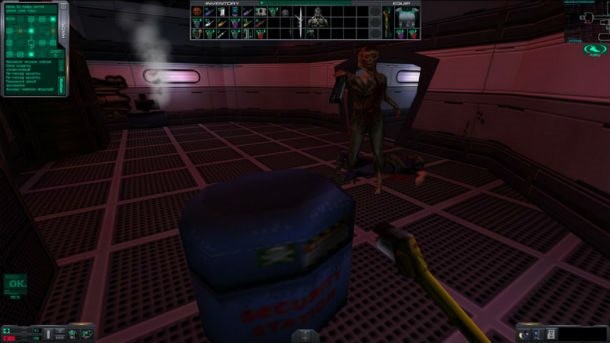
38. System Shock 2
Platform: PC
Release: 1999
Looking Glass Studio’s genre-bending horror game pitted your protagonist against a deadly A.I. on a stranded spaceship. Though it looked like a first-person shooter, System Shock 2 was built on top of an RPG foundation, letting players enhance their characters with skill trees and inventory management. This mash-up approach paved the way for the likes of BioShock, Dishonored, Mass Effect, and other genre hybrids, securing System Shock 2’s place as one the most influential games of its generation.

37. Diablo III
Platform: PS4 • Xbox One • PS3 • 360 • PC • Mac
Release: 2012
Blizzard created its own form of Hell with Diablo III’s launch. The in-game auction house was a polarizing addition – if players made it through connectivity issues that plagued the game’s launch. Blizzard course-corrected and refined the game, transforming it into a worthy entry in the series. A steady stream of updates further improved the demon-slaying action, introducing a slew of new items and even a limited-time nod to Diablo’s old-school start.
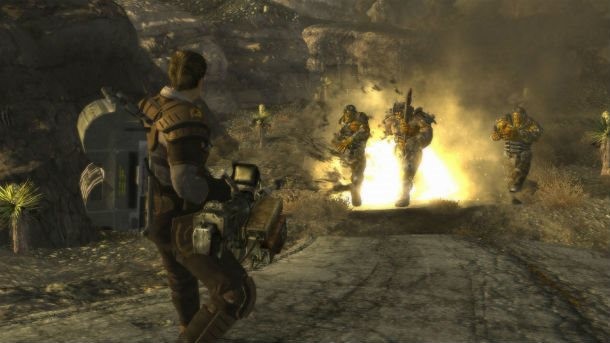
36. Fallout: New Vegas
Platform: Xbox One • PS3 • 360 • PC
Release: 2010
Despite a rough launch filled with bugs, many hardcore fans of the original Fallout games rank New Vegas above Fallout 3. Though it shared many mechanics of Bethesda’s reimagining, it featured more branching missions with alternate endings, more perks to influence your play style, and a deeper crafting system. New Vegas also stands out with its memorable companions, varied factions, and excellent storytelling where players choose the future of this desert region.

35. Final Fantasy X
Platform: PS4 • PS3 • PS2 • Vita
Release: 2001
Final Fantasy X was the series’ first entry to use fully 3D environments and voice acting. Tidus and Yuna’s journey to combat Sin culminated in a tear-jerker finale that remains one of the best Final Fantasy stories to date. Progression was fun thanks to a novel sphere-grid leveling system, and inventive turn-based battles that allowed players to swap characters and influence the turn order of each encounter.
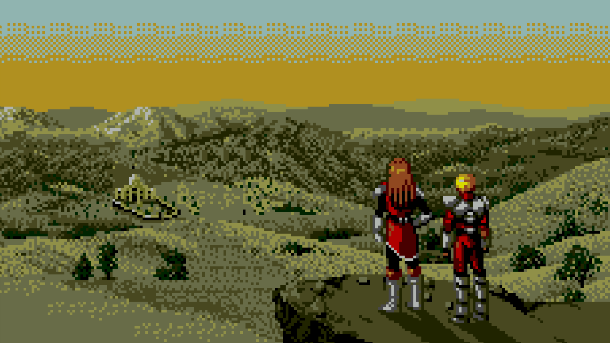
34. Phantasy Star IV: The End of the Millennium
Platform: PS3 • 360 • Wii • PS2 • Genesis • Mega Drive • PSP
Release: 1995
Though Sega kept the series hallmarks like turn-based combat and top-down exploration in place, Phantasy Star IV: The End of the Millennium improved upon its predecessors to become the definitive entry in a beloved series. The increased emphasis on exploration and storytelling, as well as the introduction of new combination mechanics in the battle system helped elevate Phantasy Star IV as the best the franchise has to offer.
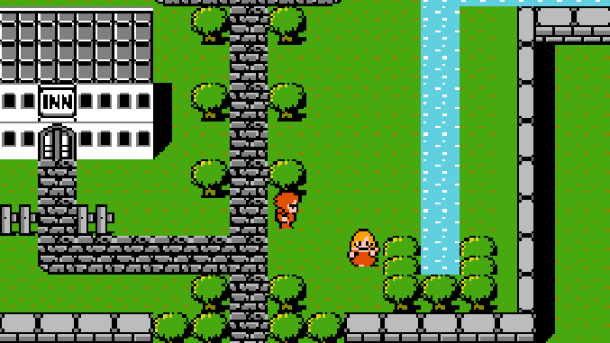
33. Final Fantasy
Platform: Wii U • Wii • PS1 • NES •3DS • PSP • GBA • iOS • Android
Release: 1990
With 15 numbered entries in the series and a massive number of sequels and spinoffs, you should take the “final” part in “Final Fantasy” with a grain of salt. The first entry may not have aged as well as other games, but Square’s groundbreaking title helped demonstrate that console players had an appetite for RPGs. It captured the essence of tabletop role-playing through its customizable party, grand journey, and unforgiving turn-based battles.
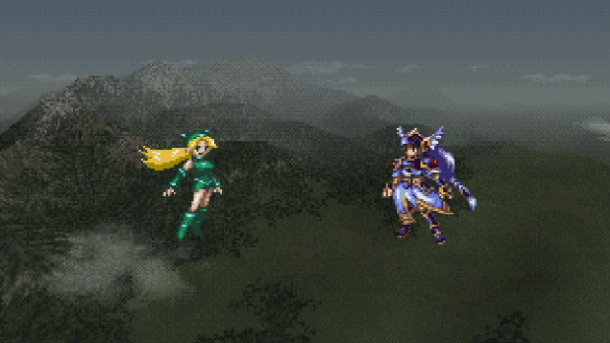
32. Valkyrie Profile
Platform: PS1 • PSP
Release: 2000
Considering the game chronicled a warrior goddess harvesting the souls of the dead, an unusual and captivating vein of sadness ran through Valkyrie Profile. Bittersweet narrative aside, this title from Tri-Ace combined side-scrolling dungeon exploration with unique timing-based combat, all supported by a complex progression system. Getting the best ending was basically impossible without guidance, but the payoff made the effort worthwhile.
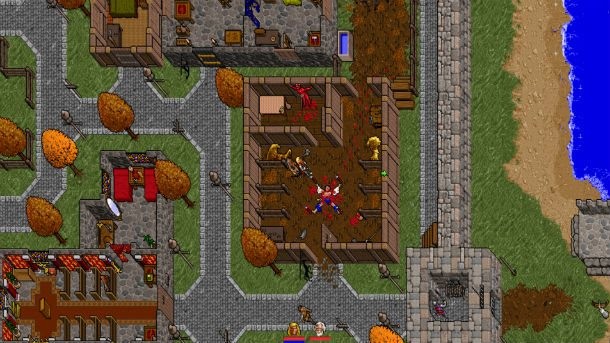
31. Ultima VII: The Black Gate
Platform: SNES • PC
Release: 1992
Creator Richard Garriott’s favorite game in his revered Ultima series, The Black Gate was a precursor to blockbuster RPGs like Skyrim and The Witcher 3. The huge open world felt more alive than any other game of its time, with day/night cycles, dynamic weather, and villagers who followed daily schedules. This “world without boundaries” approach allowed players to venture away from the main questline and immerse themselves in Britannia.
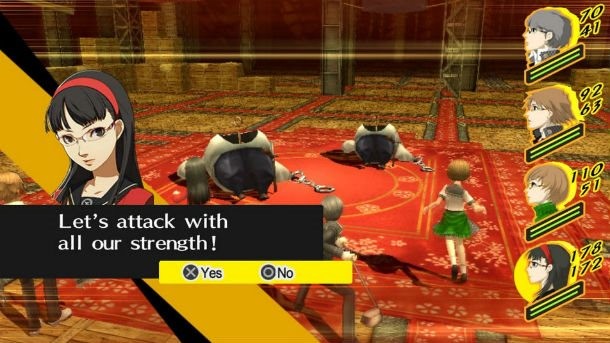
30. Persona 4
Platform: PS3 • PS2 • Vita
Release: 2012
The stellar follow-up to Persona 3, originally released for PS2 in 2008 and later remastered superbly for Vita, won over fans by lightening the tone and presenting a cast of high-school do-gooders trying to solve a mystery in a sleepy town and giving players full control of their parties. The result was one of the most memorable JRPGs of this past decade.

29. Suikoden II
Platform: PS1 • PSP • PC
Release: 1999
Political intrigue often makes for powerful stories, but Konami’s Suikoden series made it especially engrossing. You fight corruption by recruiting 108 Stars of Destiny and build up your own headquarters. Suikoden II is often heralded as the best entry, and for good rea son – you faceoff against one hell of a sadistic villain in Luca Blight. The epic battles and the harsh decisions of war hit hard, making it the most memorable story of the series.

28. Super Mario RPG: Legend of the Seven Stars
Platform: Wii U • Wii • SNES
Release: 1996
Mario has played golf, raced go-karts, and played doctor, but when Square first introduced Nintendo’s plumber to the world of RPGs, it seemed like his strangest journey to date. Thankfully, Mario’s take on turn-based combat was incredible thanks to unique 3D-rendered graphics technology, a zany cast of characters, and a humor-packed story about recovering star pieces. Mario’s first foray into the realm of RPGs remains his best.
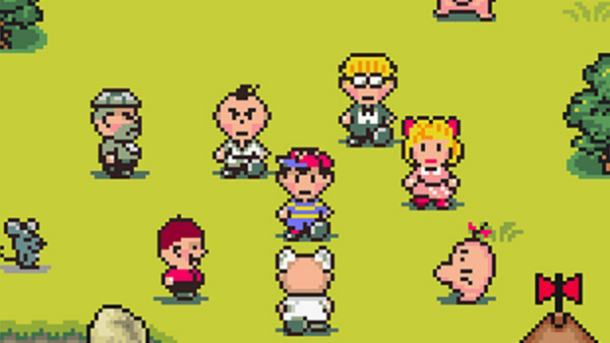
27. EarthBound
Platform: Wii U • SNES • New 3DS • GBA
Release: 1995
Charming and bizarre, Ape and Hal Laboratory created something special with Earthbound. The game referenced popular culture, broke the fourth wall, and parodied the RPG genre. Unlike anything on the market, it was ahead of the curve, providing an autofight option and instantly slaying enemies when you severely overpowered them. While Earthbound didn’t make a splash at launch, it’s grown a cult following.

26. Dragon Age: Origins
Platform: Xbox One • PS3 • 360 • PC • Mac
Release: 2009
With a narrative tackling complex themes and pause-and-play combat that allowed players to strategically queue up moves, Dragon Age: Origins was conceived as a modern successor to classic RPGs like Baldur’s Gate. However, BioWare’s first installment in this acclaimed series wasn’t a mere copycat. Its tough moral choices, memorable cast, and lore-rich world gave Origins a clear identity that put a new twist on traditional fantasy.

25. Kingdom Hearts II
Platform: PS4 • PS3 • PS2
Release: 2006
Combining Square Enix with Disney in the original Kingdom Hearts was dangerous but successful. This gave Square the chance to dramatically improve the concept with a sequel. Kingdom Hearts II marked an apex for the series thanks to its improved mechanics and more interesting Disney worlds to visit. The story was also good, though it started to go off the rails toward the end.
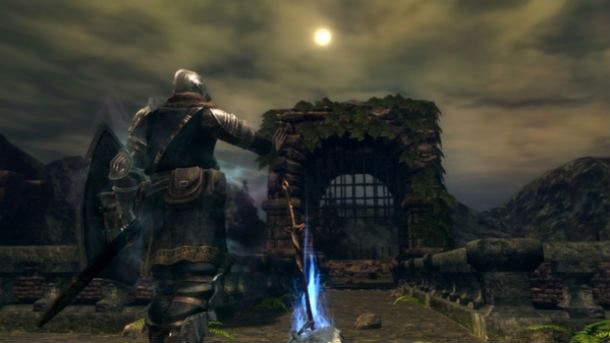
24. Dark Souls
Platform: PS4 • Xbox One • 360 • PC
Release: 2011
While its predecessor may have lit the fire, Dark Souls brought the uncompromising dark fantasy worlds of From Software to the forefront. This foreboding game was filled with esoteric lore and secrets, breathtaking scenery, and unforgettable boss battles. The atmosphere of dread, oppression, and hopelessness is juxtaposed masterfully by the massive thrill of victory that comes after downing a seemingly impossible foe.
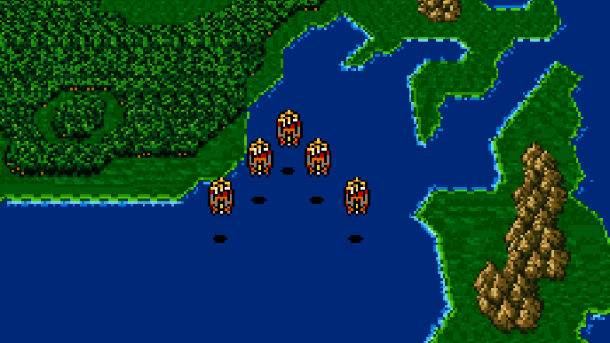
23. Final Fantasy IV
Platform: PS1 • SNES • PSP • DS • GBA • PC • iOS • Android
Release: 1991
Final Fantasy IV was the series’ first 16-bit installment, and Square used the improved technology to change the RPG landscape. The journey of Cecil, Kain, and a spectacular ensemble cast put an unprecedented focus on storytelling, while the Mode-7 airship flights provided jaw-dropping visuals. Add in fun combat, a terrifying villain, and an unforgettable soundtrack, and Final Fantasy IV withstands the test of time.
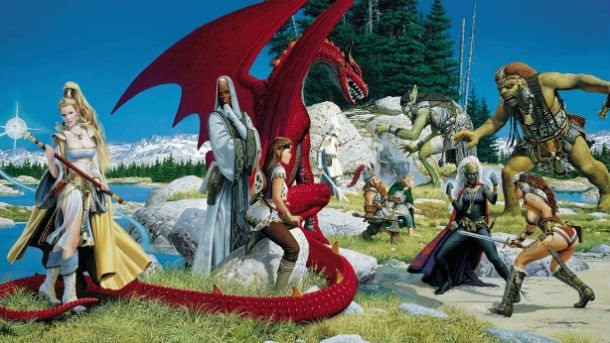
22. EverQuest
Platform: PC • Mac
Release: 1999
Sony Online Entertainment’s MMOPRG captured the hearts and souls of players, along with every moment of their free time. A hardcore experience through and through, players would camp out valuable spawns and explore dangerous dungeons with friends for days on end, hoping for that one amazing item they could show off around town. Filled with a huge world to explore, massive bosses, and the requirement to forge strong social bonds to succeed, EverQuest forged a future for one of gaming’s biggest genres.

21. The Elder Scrolls III: Morrowind
Platform: Xbox • PC
Release: 2002
Later entries made it a mainstream phenomenon, but Morrowind laid the groundwork for The Elder Scrolls’ success. The third entry in the series let players explore the 3D world of Morrowind, a desolate place inhabited by dark elves. Players were thrilled by the open structure, in which they could join guilds, own homes, and lose track of the fact that, yes, there was an actual main quest to complete.
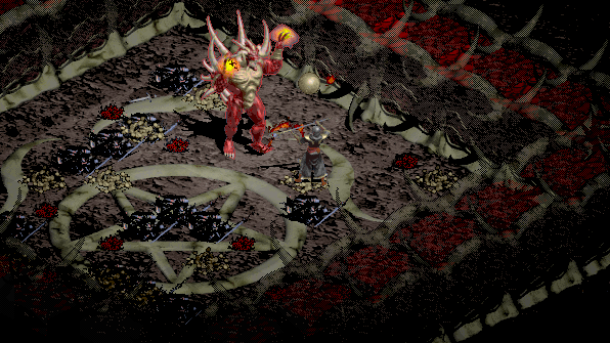
20. Diablo
Platform: PS1 • PC • Mac
Release: 1996
Diablo effectively defined the action/RPG hybrid, creating a compelling loop of exploration, combat, and loot-collecting in randomly created dungeon crawls. Even in its primitive form, Blizzard had clearly landed on something special – in large part thanks to the immediacy of its grim action. Turn-based combat be damned; Diablo was about feverishly clicking your mouse to the breaking point.
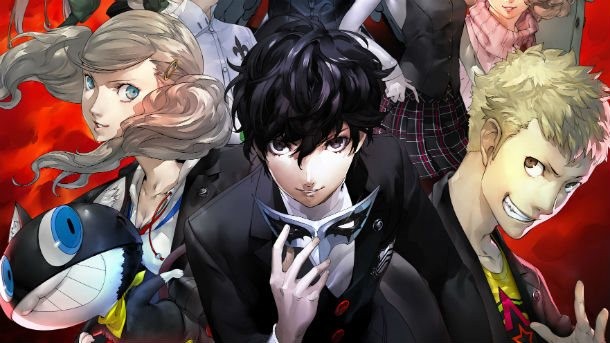
19. Persona 5
Platform: PS4 • PS3
Release: 2017
Making friends, studying for exams, and saving the world – Persona 5 took the series’ signature formula and polished it to a mirror sheen. Whether you chose to spend time building relationships or exposing corruption in the metaverse, Persona 5 rewarded your effort with nuanced characters and refined turn-based combat. The journey was even more arresting thanks to the impeccable visual style and standout soundtrack, establishing a slick and consistent atmosphere unlike anything else in the genre. Though Persona 5 is the most recent game in our top 100, it has distinguished itself as the best entry in an amazing franchise.

18. Final Fantasy VII
Platform: PS4 • PS1 • Vita • PC • iOS • Android
Release: 1997
The continuing legacy of Square’s first step into 3D RPGs is a testament to Final Fantasy VII’s quality. Even 20 years after its original release, the cast is still regarded as some of the most memorable characters in gaming. The world was bursting with minigames and hidden secrets, and Square told a mature story that featured a mid-game twist so gut-wrenching fans are still recovering from the shock. Final Fantasy VII’s materia system gave players the freedom to shape and reshape their characters – a flexibility that was absent from most other RPGs of the time. Final Fantasy VII is so good Square is currently working on a reboot, guaranteeing we’ll probably still be talking about it 20 years from now.

17. Ultima Online
Platform: PC
Release: 1997
While a multitude of multi-user dungeons and other smaller-scale MMORPGs like Meridian 59 existed in the ‘90s, Origin System’s Ultima Online is largely given credit for putting the genre on the map. Featuring a persistent world that thousands could interact with and influence, the game became a proving ground for best and worst aspects of a freeform experience like PvP battles, economy rigging, and robbing fellow players.

16. Secret of Mana
Platform: Wii • SNES • iOS • Android
Release: 1993
A sequel to Final Fantasy Adventure, Square’s Secret of Mana set a new high bar for action/RPGs at the time of its release. The gorgeous visuals and memorable music supplemented the touching story and fun real-time combat, which let you pause the action with the ring-command system. Throw in cooperative multiplayer – a rarity at the time – and it’s easy to see why this 16-bit RPG’s legacy lives on.
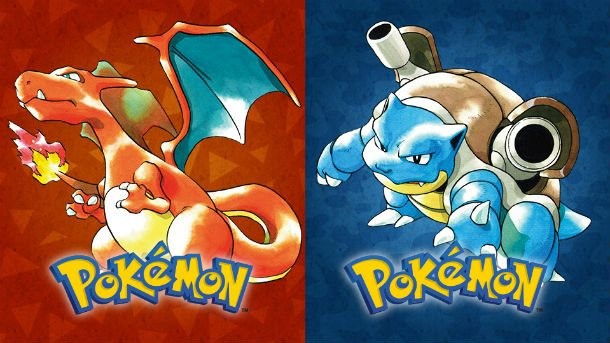
15. Pokémon Red & Blue
Platform: 3DS • Game Boy
Release: 1998
Few video game franchises transcend the medium to become worldwide phenomena, but Game Freak’s Pokémon is one of the few. Journeying across the world to collect 151 monsters and use them in battle is instantly appealing. Add in a fun story about earning gym badges while taking down an evil organization, and you can see why players had to catch ‘em all. Later entries continued refining the formula, but the first Pokémon entries laid an awesome foundation for one of gaming’s most popular series.
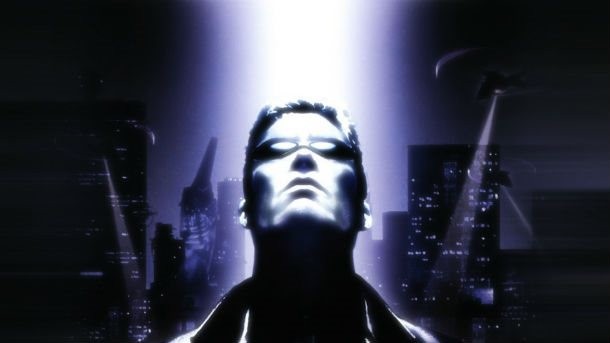
14. Deus Ex
Platform: PS2 • PC • Mac
Release: 2000
Ion Storm took the gaming world by surprise with this inventive genre hybrid. Successfully melding together elements of stealth games, first-person shooters, and RPGs, Deus Ex embraced player choice in a way few games had attempted. The dystopian, near-future setting empowered its players to approach missions in any way they saw fit, spending skill points to unlock new augmentations that complemented their play style. The cyberpunk backdrop proved fertile enough to foster several more Deus Ex games, but none come close to matching the inventiveness of the original.

13. Planescape: Torment
Platform: PC • Mac • iOS
Release: 1999
The most memorable of the Black Isle Studios games using the Infinity Engine, Planescape: Torment took the brave risk of focusing on story instead of combat. A quest-centric experience rooted in Dungeons & Dragons’ Planescape multiverse, the characters, story, and experiences took center stage, serving as a pioneer in the genre for rich narratives and weird, wild exploration. The amnesiac immortal The Nameless One is still one of the most complex and memorable characters in all of gaming, and even small choices players made rippled through the narrative with unforeseen consequences.
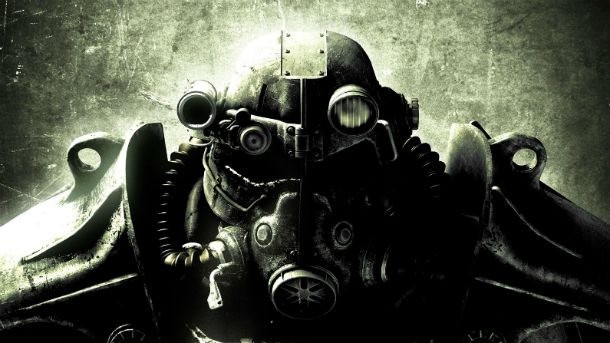
12. Fallout 3
Platform: Xbox One • PS3 • 360 • PC
Release: 2008
Bethesda had no shortage of skeptics when it acquired the beloved Fallout series, but the studio silenced all but the most entrenched detractors with this blockbuster re-interpretation. Ditching series conventions like the isometric camera and turn-based battles in favor of a first-person perspective and real-time combat, Fallout 3 brought the post-apocalyptic RPG to mainstream audiences, selling more than 12 million copies and winning several game of the year awards along the way.

11. Bloodborne
Platform: PS4
Release: 2015
From Software reached pure atmospheric glory in Bloodborne, a dark action/RPG drawing upon Lovecraftian lore. While the Souls series has always succeeded at bringing forlorn fantasy to life, From’s flair for creating terrifying environments populated by epic, intimidating bosses is realized both aesthetically and thematically in Bloodborne. A trek through a waking nightmare, the player is treated to surreal delights accompanied by a haunting soundtrack and a plethora of wicked weapons. Bloodborne serves an enthralling, challenging experience infused with fear and wonder.
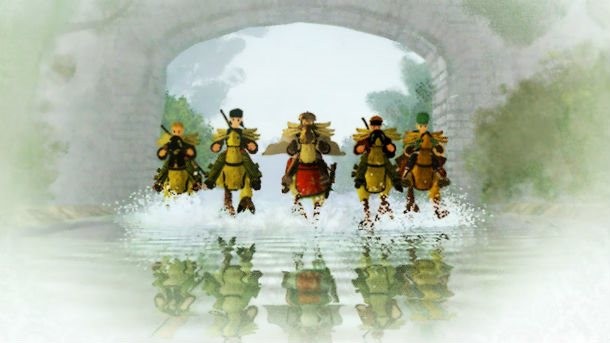
10. Final Fantasy Tactics
Platform: PS3 • PS1 • Vita • PSP • iOS • Android
Release: 1998
Final Fantasy Tactics might be a spin-off of Square’s biggest brand, but it doesn’t sit under the main franchise’s shadow. This tactics adventure told the story of a group of highborn cadets thrust into the middle of a war for the throne, which felt more mature and political than previous Final Fantasy games. However, the gameplay is where Tactics really shines. Square evolved its familiar job-class structure into a progression system so deep that you could lose yourself in the thrill of modifying your heroes for hours. Tactics lived up to its name by providing a series of clever encounters that challenged our adept heroes at every turn.
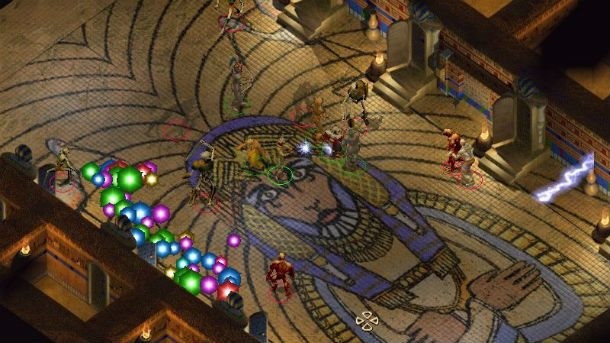
9. Baldur’s Gate II: Shadows of Amn
Platform: PC • Mac • Linux • iOS • Android
Release: 2000
A dark and forbidding atmosphere, richly drawn and voiced character cast, and strategic combat refined an already engaging system over its predecessor, and made Baldur’s Gate II the definitive isometric CRPG for millions of players around the world. The game’s success also set the stage for BioWare’s ascendance and evolution as one of the defining developers of RPGs in the subsequent decades. Few games have so thoughtfully captured the D&D aesthetic and rules. But even standing on its own merits, Baldur’s Gate II was a triumph of player choice, offering constant moments of discovery and magic fueled by the player’s interactions within the world.
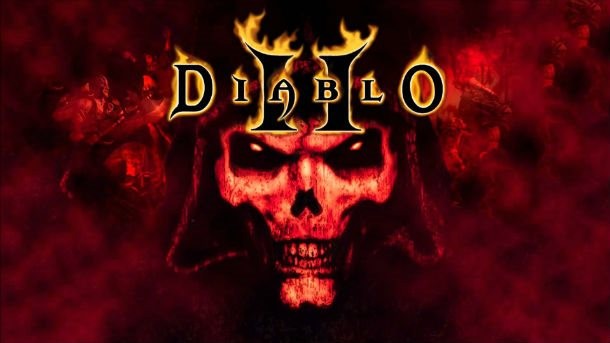
8. Diablo II
Platform: PC • Mac
Release: 2000
For its return trip to Hell, Blizzard retooled the Diablo template and ended up creating a classic. The core game’s five classes offered enough variety alone, but the wealth of randomly generated loot created a staggering amount of customization options. Diablo II’s bloody, dark-fantasy setting was a memorable playground for fans who poured hundreds of hours slaying hellspawn for “just a few more minutes.” The game flourished online, giving Battle.net players additional depth when building out their adventuring parties. Blizzard clearly has fond memories of the game, too, releasing updates long after its release – and as recently as 2016.

7. Star Wars: Knights of the Old Republic
Platform: PS2 • Xbox • PC • iOS • Android
Release: 2003
The Force was strong with BioWare’s Knights of the Old Republic, an RPG that let players determine if they would be a Jedi or Sith Lord through choice-driven scenarios. Set roughly 4,000 years before the birth of the Galactic Empire, Star Wars fans often jokingly call this game “the good prequel,” as the game’s jaw-dropping twist was more memorable than George Lucas’ take on young Anakin Skywalker. BioWare delivered memorable characters and pushed the boundary of voice acting in RPGs, creating the blueprint used for many of its later RPGs.

6. World of Warcraft
Platform: PC • Mac
Release: 2004
While Blizzard’s MMORPG wasn’t the first in the genre, it is undoubtedly the one that popularized it, and has had developers chasing its success ever since. Combining social aspects of its predecessors with the popular RTS franchise’s lore and revamping the clunky user interface often associated with older genre offerings, World of Warcraft made MMOs accessible and enjoyable to a broader audience than ever before. Once catering solely to the longtime participants who would race to conquer dragons and raids before other elite guilds, WoW has continually transformed and evolved over 12 years. It now offers a wealth of activities and challenges for both the causal once-a-week-login and the world-first raid leader.
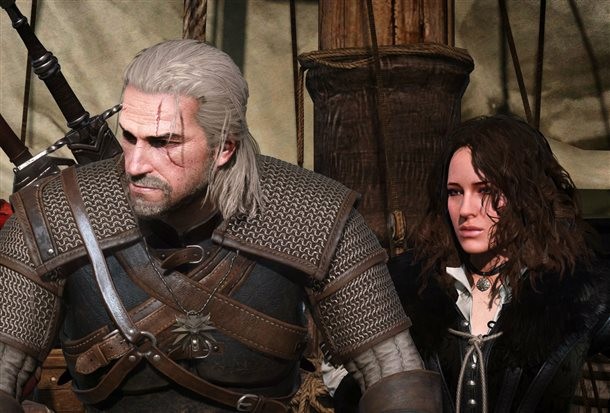
5. The Witcher 3: Wild Hunt
Platform: PS4 • Xbox One • PC
Release: 2015
CD Projekt Red raised the RPG genre’s storytelling stakes with The Witcher 3: Wild Hunt. Its superb open world hosted hundreds of quests and meaningful decisions around every bend, always giving you something to do. Seeing your choices ripple across the vast landscape was a highlight itself, and the masterful writing added unpredictability and shades of gray to every dilemma. Seeing a game with such an ambitious scope deliver so fully in terms of quality is rare, but The Witcher 3 did just that, while also raising expectations for what an open-world RPG should offer in terms of depth, breadth, and polish.

4. Mass Effect 2
Platform: Xbox One • PS3 • 360 • PC
Release: 2010
After BioWare ambitiously set the table with the original Mass Effect, the second entry fulfilled the studio’s promises. In addition to massively improving the gameplay, the narrative focus on building a team and earning allies’ loyalty gave players new avenues to get invested in Commander Shepard’s legend. It also introduced The Illusive Man, a humanity-first puppetmaster who serves as one of the most interesting and complicated villains in gaming. From the action-packed opening sequence to the “suicide mission” that showed you the consequences of your actions, Mass Effect 2 was a compelling thrill ride that represents the pinnacle of one of the greatest modern RPG series.
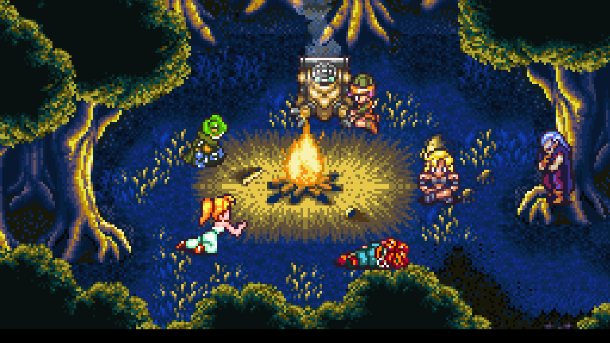
3. Chrono Trigger
Platform: PS3 • PS1 • SNES • Vita • 3DS • PSP • DS • GBA • iOS
Release: 1995
Any RPG fan would have a hard time finding something bad to say about Chrono Trigger. The product of a development dream team at Square, it was full of charming characters, colorful visuals, and fantastic music. The time-bending story had players exploring settings that ranged from prehistoric to post-apocalyptic, all while taking advantage of a clever battle system that encouraged cooperation among characters. From heroes dying to villains joining your cause, the tale was full of twists and turns. Even when you finished, Chrono Trigger’s defining use of New Game Plus and multiple endings ensured that you always had a reason to relive the adventure.

2. Final Fantasy VI
Platform: PS3 • PS1 • SNES • Vita • PSP • GBA • PC • iOS • Android
Release: 1994
Despite stiff competition (often from developer Square itself), Final Fantasy VI has earned its place as the best of the best in a golden era of RPGs. From the unsettling opening sequence to the god-killing finale, Final Fantasy VI kept players hooked with innovations around every corner. The plot juggled perspectives brilliantly, shaping the setting and story through multiple interesting viewpoints – even when the world literally fell apart thanks to the deliciously deranged villain, Kefka. Each of the 14 party members could shine thanks to well-written dialogue and unique combat abilities, and the exceptional graphics and music gave the experience an undeniable magnetism. That sense persists even today, making Final Fantasy VI a timeless classic.
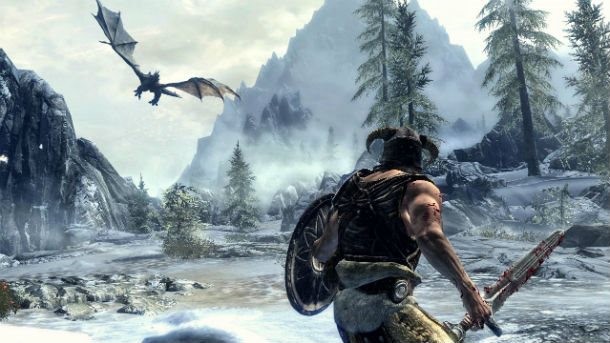
1. The Elder Scrolls V: Skyrim
Platform: PS4 • Xbox One • PS3 • 360 • PC
Release: 2011
The essence of role-playing is inhabiting a character and seeing where your adventures take you. No game accomplished that quite like Skyrim, which expanded on the series’ foundation and let players loose in a sprawling world full of stories. Bethesda’s mastery of player-driven progression reached new heights with this entry, combining flexible combat and engaging quests to impart a unique sense of ownership. Skyrim was revolutionary when it first released (despite some technical issues), and has grown more varied and customizable thanks to Bethesda’s support for mod community on both PC and console. Skyrim may not carry the same nostalgic weight as old-school games, but it opened RPGs up to a wider audience that wouldn’t know a saving throw from a feat, and it set a standard for open-world RPGs that modern releases still strive to reach.
That's all 100 – but wait! We still have one more RPG to pay tribute to...

0. Dungeons & Dragons
Platform: Tabletop
Release: 1974
The gaming world owes a great debt to Dungeons & Dragons, from the character-driven video games of the last four decades to the countless sprawling tabletop role-playing games it spawned. Co-created by Dave Arneson and Gary Gygax, this seminal game was born from the miniatures wargaming scene, but introduced the idea of singular characters that moved through a dangerous world while a dungeon master controlled the flow of action, giving structure to imaginary narrative play in a brand-new way. The game captured the imaginations of players around the world. Its many subsequent editions, offshoots, and descendants continue to do so to this day.
Dungeons & Dragons’ influence and impact is hard to overstate. Most early video game RPGs were direct attempts to emulate the D&D concept in digital form. The fantasy milieu of D&D, itself inspired by works like J.R.R. Tolkien’s The Lord of the Rings and Robert E. Howard’s Conan tales, practically defined computer RPGs in the early years. Character leveling and progression, exploration and questing, a defined statistical ruleset, randomness through dice rolls or number generation, and narrative player choice all trace their roots here.
Our ranking of RPGs is focused on video games, but it’s impossible to know if any of these games would exist without the root experience that D&D introduced: friends gathered around a table, laughing, and sharing in an adventure.











